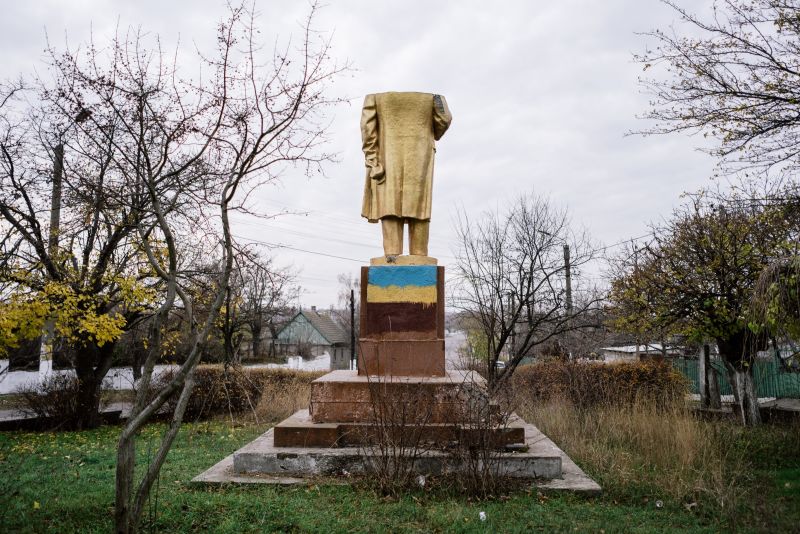Uncovering Lenin: The Ongoing Search for Abandoned Statues in Ukraine
Photographer Niels Ackermann and journalist Sebastien Gobert have dedicated the last year to uncovering the stories of abandoned and stolen statues of Vladimir Lenin scattered throughout Ukraine. Following the ban on Soviet symbols in 2015, this quest has taken them deep into a country where remnants of this history still exist in various forms.
The Historical Context
At one time, there were approximately 5,000 Lenin statues in Ukraine. According to Gobert and Ackermann, this figure is notably impressive given that Russia, 28 times larger, had only 2,000 more. The dissolution of the Soviet Union in 1991 led to the disappearance of about half of Ukraine’s Lenin statues, with an additional 1,200 removed during the national unrest that began in 2013.
The Transformation of Statues
Interestingly, some statues have not only been taken down but also creatively transformed. For instance, one statue was reimagined at the request of its owner as Darth Vader from the “Star Wars” franchise. This exemplifies a mix of nostalgia and contemporary reinterpretation that captures the imagination.
Entrepreneurial Spirit in Ukraine
The local authorities own many of these monuments; however, opportunistic individuals have nonetheless engaged in taking them down. The movement termed Leninopad, translating to “Lenin-fall,” continues to persist, as Gobert and Ackermann actively search for remaining monuments.
The Search for Monuments
Finding these statues involves dealing with individuals on both sides of the law, often navigating complex legal layers and secrecy. Gobert explains the thrill of following leads around the country, revealing that some discoveries occurred just under their noses, including artworks that feature remnants of destroyed statues.
Private Collections and Preservation
While many statues end up in local history museums or are stored away due to resource constraints, some are hidden in private collections. Reports from Gobert and Ackermann reveal that while some statues are sold, others made of bronze are often melted down, symbolizing the loss of historical artifacts.
The Unexpected Collectors
Throughout their investigation, they noted that nationalists might treat these statues as trophies, akin to collecting stamps. This phenomenon reflects the broader cultural and historical tensions within Ukraine.
The Continuing Journey
Despite the challenges, Gobert and Ackermann remain committed to their journey, stating, “The project keeps on changing and dragging us to new spots with new people, it’s like a never-ending story.” Their work underscores the ongoing evolution of cultural identity and memory in post-Soviet Ukraine.








